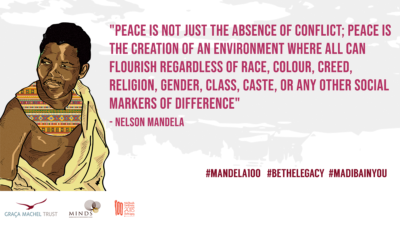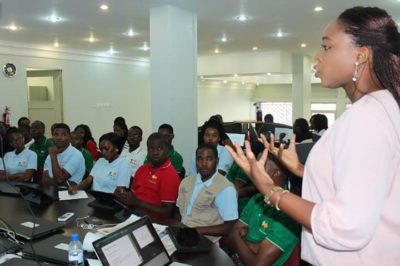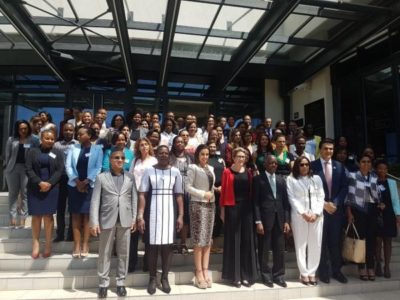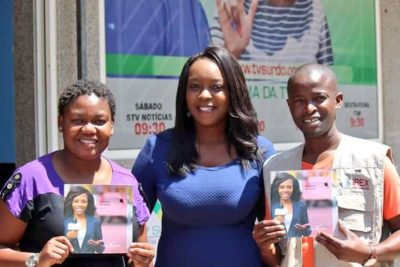We see and experience inequality on an everyday basis. We have seen it from when Africans were traded as slaves to Europeans during the slave trade. We have seen African countries being colonised and when South Africa was ruled under the Apartheid regime.
Today we see inequality in work places, in our homes, and in society generally.

Nelson Mandela symbolized the fight for freedom, not only in South Africa but globally. As president of the African National Congress (ANC), Mandela was at the forefront of fighting the apartheid regime, he led peaceful protests and armed resistance against the white minority’s oppressive regime in a racially divided South Africa which saw him face 27 years of imprisonment.
Even after his imprisonment, Mandela continued to fight for injustice. As president of the country, he oversaw the transition of the country to a democratic state. He retired from politics in 1999 but still championed peace and social justice.
Nelson Mandela received the Noble Peace Prize, for fighting for apartheid
Another way of fighting inequality is giving a voice and a platform to those whose voices have been stifled in society and making them visible. Selma Inocência, a Mozambican journalist and communication consultant, and a member of the Graca Machel Trust Women In Media Network (GMT WIMN) is a journalist helping to change the narrative of women and children in the media.
She believes that journalists have access to a very large audience and they can contribute to the change of mind set on gender issues.
The award winning journalist has facilitated training and advocacy campaigns to empower women and girls. She held a training for young journalists and community journalists to change the narrative of news coverage, including focusing on women’s issues. This training involved about 30 journalists (male and female). The objective of the training was to learn how to consider a gender approach in politics, economics, education, and cultural issues in reporting.

Selma Training journalists
This aligns to the work that the WIMN does, which is aims to transform the way women are generally portrayed. It also seeks to contribute to gender equality in the newsroom as female journalists seek assignments aimed at changing the narrative of women by challenging gender stereotypes that hinder women’s economic advancement.
Selma also voluntarily trained a TV station called Deaf TV in Mozambique to change the narrative in coverage of women and children’s issues when dealing with disability. The station produces weekly content about people with disabilities to spread throughout the country through public TV (TVM), two private TVs (STV and TIM) and online. The employees of this TV are mostly people with disabilities and produce their own content.
“The training was important for this team to prioritize issues of women and children with disabilities in their news production agenda. I also distributed the report on gender coverage in Kenya, after an assessment exercise of the scenario in Mozambique,” she says.
Selma’s work has also been recognized beyond the African borders. She was invited to be a speaker at a University in the United States of America – Nichols College – in Boston, Massachussets about her experience as an African woman journalist.
“I shared the challenges I have faced and opportunities in Africa and how the people have been influential in my life. I have also shared initiatives that we have in Africa such as Women Advancing Women. This created the will of the students to come to know Africa and its revolutionary initiatives.
Selma has taken to public platforms to discuss the issues that are affecting women and children. On International Women’s Day, 2017 Selma participated in a high level panel, that included Mama Graça Machel. The panel discussed the advances and challenges of women on various fronts.

Women’s Summit
“In the same forum I appealed for the repeal of a rule that forbids pregnant girls from studying during the day by referring them to studying at night. This is a factor of non-permanence of the girls in the school in Mozambique,”
Selma has also moderated debates about women in corporate business/ entrepreneurship. The panel brought together senior figures from the private sector who discussed the challenges and opportunities for women to reach the board position in big companies.

“In order to combat inequality in the media, it is necessary to invest in the training of women journalists so that they can compete on the same level as men in newsroom. I believe that when they arrive in decision-making positions, this is a huge opportunity to create balance in the work teams, but also she can influence the agenda, making the contents more and more balanced, for the good of the whole society,”
What change do you want to see happening in your community? You hold the power to ensure that this transformation happens. Fighting injustice can be done in a lot of ways, so we encourage you to find the Madiba and the Selma in you to combat inequality! To learn more about the Graça Machel Trust’s Women in Media Network program click here.










 The Trust supports and mobilises civil society networks on issues of ending child marriage, ending violence against children, ending female genital mutilation and promoting children’s rights, to carry out advocacy and action across Africa. Special focus is placed on Malawi, Mozambique, Tanzania and Zambia where child marriage continues to be a problem largely driven by poverty, gender inequality, harmful traditional practices, conflict, low levels of literacy, limited opportunities for girls and weak or non-existent protective and preventive legal frameworks.
The Trust supports and mobilises civil society networks on issues of ending child marriage, ending violence against children, ending female genital mutilation and promoting children’s rights, to carry out advocacy and action across Africa. Special focus is placed on Malawi, Mozambique, Tanzania and Zambia where child marriage continues to be a problem largely driven by poverty, gender inequality, harmful traditional practices, conflict, low levels of literacy, limited opportunities for girls and weak or non-existent protective and preventive legal frameworks.




 Education is a fundamental right for all children, which is also a vehicle for social, economic and political transformation in communities, countries and the African continent at large. Recent studies indicate a lack of progress in some of the critical commitments aimed at improving education quality, access, retention and achievement, particularly for girls. In most African countries, girls may face barriers to learning, especially when they reach post-primary levels of education. By implementing multi-dimensional approaches to education which includes core education, personal development, life skills and economic competencies, the Trust partners with funding partners, governments, civil societies and the private sector to improve education access.
Education is a fundamental right for all children, which is also a vehicle for social, economic and political transformation in communities, countries and the African continent at large. Recent studies indicate a lack of progress in some of the critical commitments aimed at improving education quality, access, retention and achievement, particularly for girls. In most African countries, girls may face barriers to learning, especially when they reach post-primary levels of education. By implementing multi-dimensional approaches to education which includes core education, personal development, life skills and economic competencies, the Trust partners with funding partners, governments, civil societies and the private sector to improve education access.

 The Nutrition and Reproductive, Maternal, New-born, Child and Adolescent Health and Nutrition, (RMNCAH+N) of the Children’s Rights and Development Programme aims at promoting the Global Strategy for women, children and adolescents’ health within the Sustainable Development Goals (SDG) agenda. The strategy emphasises on the importance of effective country leadership as a common factor across countries making progress in improving the health of women, children and adolescents.
The Nutrition and Reproductive, Maternal, New-born, Child and Adolescent Health and Nutrition, (RMNCAH+N) of the Children’s Rights and Development Programme aims at promoting the Global Strategy for women, children and adolescents’ health within the Sustainable Development Goals (SDG) agenda. The strategy emphasises on the importance of effective country leadership as a common factor across countries making progress in improving the health of women, children and adolescents. Through its Early Childhood Development (ECD) plan, The Trust will seek to put into action the new science and evidence Report that was presented by Lancet Series on Good and early development – the right of every child. This will be achieved by mobilising like-minded partners to contribute in the new science and evidence to reach all young children with ECD. The Trust’s goal is to be a catalyst for doing things differently, in particular, to rid fragmentation and lack of coordination across ECD sectors. In response to evidence showing the importance of political will in turning the tide against the current poor access and quality of ECD. Even before conception, starting with a mother’s health and social economic conditions, the early years of a child’s life form a fundamental foundation that determines whether a child will survive and thrive optimally.
Through its Early Childhood Development (ECD) plan, The Trust will seek to put into action the new science and evidence Report that was presented by Lancet Series on Good and early development – the right of every child. This will be achieved by mobilising like-minded partners to contribute in the new science and evidence to reach all young children with ECD. The Trust’s goal is to be a catalyst for doing things differently, in particular, to rid fragmentation and lack of coordination across ECD sectors. In response to evidence showing the importance of political will in turning the tide against the current poor access and quality of ECD. Even before conception, starting with a mother’s health and social economic conditions, the early years of a child’s life form a fundamental foundation that determines whether a child will survive and thrive optimally.